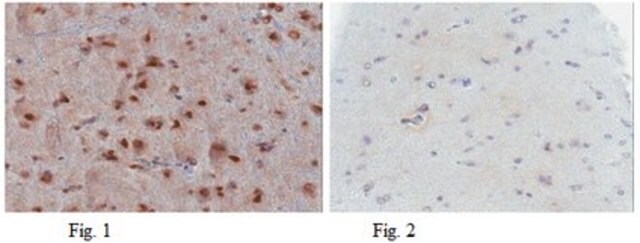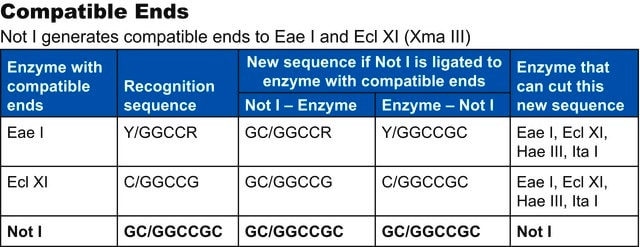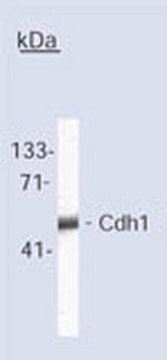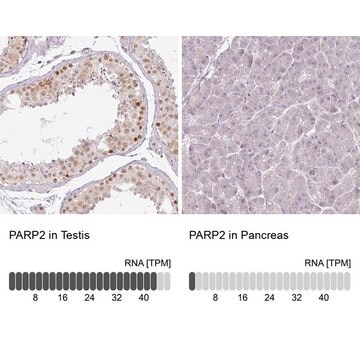R8381
Dpn I from Diplococcus pneumoniae
Restriction Enzyme
Se connecterpour consulter vos tarifs contractuels et ceux de votre entreprise/organisme
About This Item
Numéro CAS:
Numéro MDL:
Code UNSPSC :
12352204
Produits recommandés
Qualité
for molecular biology
Forme
buffered aqueous glycerol solution
Concentration
10,000 units/mL
Conditions d'expédition
wet ice
Température de stockage
−20°C
Spécificité
Recognition sequence: 5′-GmA/TC-3′
Ligation and recutting results: After 2-10-fold Dpn I overdigestion of 1 μg pBR322 DNA substrate, results in 100% cutting, >30% of fragments can be ligated, and >90% recut.
Heat inactivation: 75 °C for 15 minutes.
Ligation and recutting results: After 2-10-fold Dpn I overdigestion of 1 μg pBR322 DNA substrate, results in 100% cutting, >30% of fragments can be ligated, and >90% recut.
Heat inactivation: 75 °C for 15 minutes.
Application
DpnI is a restriction endonuclease that is used in molecular biological applications to cleave the recognition sequence 5′-GmA/TC-3′, generating DNA framents with blunt ends.
Autres remarques
Supplied with 10x Restriction Enzyme Buffer SA (B7531).
Comment: Since Dpn I will completely cleave only fully methylated pBR322 DNA, cleavage of 95% or more is considered complete digestion.
Forme physique
Solution in 10 mM Tris-HCl, pH 8.0, 400 mM NaCl, 0.1 mM EDTA, 1 mM dithiothreitol, 200 μg/ml BSA, 50% glycerol (v/v) at 4 °C
Produit(s) apparenté(s)
Tampon d'incubation
Réf. du produit
Description
Tarif
Faites votre choix parmi les versions les plus récentes :
Déjà en possession de ce produit ?
Retrouvez la documentation relative aux produits que vous avez récemment achetés dans la Bibliothèque de documents.
S Lacks et al.
The Journal of biological chemistry, 250(11), 4060-4066 (1975-06-10)
A deoxyribonuclease specific for methylated DNA was isolated from Diplococcus pneumoniae. The enzyme, an endonuclease, degrades DNA for Escherichia coli to fragments of average molecular weight about half a million; it forms discrete fragments from phage lambda DNA. Methyl-deficient E.
Min Ju et al.
The Journal of biological chemistry, 278(15), 12769-12778 (2003-02-01)
The human and rat forms of the Kv2.1 channel have identical amino acids over the membrane-spanning regions and differ only in the N- and C-terminal intracellular regions. Rat Kv2.1 activates much faster than human Kv2.1. Here we have studied the
K Alheim et al.
Journal of molecular endocrinology, 30(3), 359-368 (2003-06-07)
Glucocorticoids are known regulators of the cell cycle, normally exerting an anti-proliferative effect. We have previously shown that glucocorticoids stimulate expression of p57(Kip2), a member of the Cip/Kip family of cyclin-dependent kinase inhibitors which, in some cell types, may account
C Kessler et al.
Gene, 92(1-2), 1-248 (1990-08-16)
The properties and sources of all known class-I, class-II and class-III restriction endonucleases (ENases) and DNA modification methyltransferases (MTases) are listed and newly subclassified according to their sequence specificity. In addition, the enzymes are distinguished in a novel manner according
Cong Zhu et al.
Nucleic acids research, 41(4), 2455-2465 (2013-01-11)
Zinc-finger nucleases (ZFNs) have been used for genome engineering in a wide variety of organisms; however, it remains challenging to design effective ZFNs for many genomic sequences using publicly available zinc-finger modules. This limitation is in part because of potential
Notre équipe de scientifiques dispose d'une expérience dans tous les secteurs de la recherche, notamment en sciences de la vie, science des matériaux, synthèse chimique, chromatographie, analyse et dans de nombreux autres domaines..
Contacter notre Service technique







